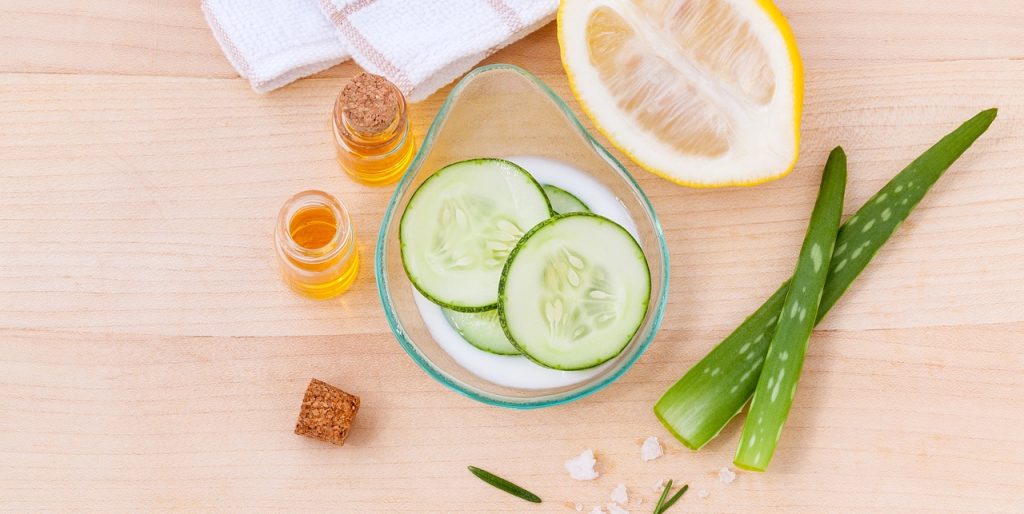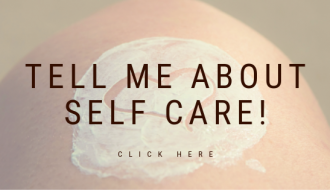The Beginner’s Guide to DIY Self-Care
This post contains affiliate links, which means I receive a small commission, at no extra cost to you, if you make a purchase using this link. Please see my disclosure for more details.

Self-care has become increasingly important in recent years, with more and more people recognizing the need to take care of themselves both physically and mentally. As a result, the self-care industry has grown exponentially, with an array of products available to suit every need. From skincare to aromatherapy, there is a self-care product out there for everyone. However, with so many options available, it can be difficult to know which products are truly effective and safe to use. This is where creating your own self-care products comes in. By creating your own products, you can have complete control over the ingredients, ensuring that they are safe and effective for your specific needs. DIY self care recipes allow you to take control of your own self care routine, and can be a fun and rewarding way to take care of yourself.
Understanding Ingredients
Understanding the benefits and properties of various ingredients is crucial when it comes to creating safe and effective self-care products. Each ingredient has its own unique properties and benefits, and understanding how they work together can help you create products that are tailored to your specific needs. For example, ingredients like aloe vera, honey, and green tea are known for their soothing and moisturizing properties, making them great choices for dry or sensitive skin. On the other hand, ingredients like tea tree oil and charcoal are known for their cleansing and purifying properties, making them ideal for oily or acne-prone skin. By doing your research and understanding the properties of different ingredients, you can ensure that the self-care products you create are safe, effective, and customized to your needs.
Not only does understanding the benefits of different ingredients allow you to create effective and safe self-care products, but it also helps you avoid ingredients that may cause irritation or sensitivity. Some commercial products contain harsh chemicals and synthetic ingredients that can be harmful to your skin and overall health. By creating your own self-care products, you have complete control over what you put on your skin, and you can avoid these potentially harmful ingredients. By doing your research and choosing ingredients carefully, you can create self-care products that not only make you look good, but also make you feel good from the inside out. This can have a positive impact on your overall well-being, helping you to feel more confident, relaxed, and refreshed. With the knowledge and resources available, you can create self-care products that are safe, effective, and customized to your specific needs, so you can enjoy all the benefits of a healthy, self-care routine.

Popular DIY Self-Care Recipes
There are a lot of different DIY self care recipes available, but some of the most popular ones include:
- Sugar scrubs
- Homemade face masks
- Body butters
- Aromatherapy sprays
- Bath bombs These recipes are easy to make and use natural ingredients that are safe and effective.
These recipes are easy to make and use natural ingredients that are safe and effective. A sugar scrub, for example, can be made with just sugar, oil, and essential oils of your choice, and it’s a great way to exfoliate and moisturize your skin. A homemade face mask can be made with ingredients like honey and yogurt, which can help to hydrate and soothe the skin.
If you’re interested in creating your own self-care products, there are a number of resources available to help you get started. A great place to begin is Karma for Health, which provides a wealth of information and resources on DIY self-care recipes. From detailed recipes and instructions to tips and tricks, Karma for Health is a one-stop-shop for all your self-care needs. Whether you’re looking to create a facial scrub, body lotion, or any other type of self-care product, Karma for Health has you covered. With its extensive selection of recipes and resources, you’re sure to find everything you need to get started on your self-care journey. So if you’re ready to create your own safe and effective self-care products, be sure to check out Karma for Health regularly.
If you’re looking for additional resources for DIY self-care recipes, there are plenty of other places to find them. Social media platforms like Pinterest and Instagram are great places to find inspiration and tutorials for self-care products. You can also check out websites and blogs that specialize in natural living and wellness, such as Wellness Mama, The Balanced Life, and The Crunchy Mommy. These sites often have extensive collections of self-care recipes and resources, including tutorials and videos to help guide you through the process. Additionally, there are many books and e-books available that focus specifically on DIY self-care and wellness. From herbal remedies and aromatherapy to natural skincare and beauty, these resources provide a wealth of information and inspiration for crafting your own self-care products. So whether you prefer online resources or physical books, there are plenty of options available to help you find the information and recipes you need for your self-care journey.

Benefits of DIY self-care
When it comes to self-care, creating your own products provides a number of advantages. One of the biggest is the control it gives you over the ingredients used. This way, you can make sure that what you’re putting on your skin is both safe and effective for your individual needs. By selecting ingredients based on your skin type and specific concerns, you can avoid the harsh chemicals and additives commonly found in store-bought products.
Moreover, crafting your own self-care products can be an enjoyable and fulfilling hobby. It allows you to tap into your creative side and experiment with different ingredients and scents to design a routine that is personalized to your specific needs and preferences. Not only will you have a self-care routine that is effective and safe, but it can also provide you with a sense of accomplishment and pride knowing that you made the products yourself. So not only does making your own self-care products benefit your skin and well-being, but it also provides a fun and engaging outlet for personal expression and creativity.
Additionally, making your own self-care products can be an economical choice as well. Many DIY self-care recipes utilize ingredients that are readily available and budget-friendly. This can help you save money in the long run, as store-bought products can be expensive and may contain costly, unnecessary ingredients. By using simple and affordable ingredients, you can create high-quality self-care products without breaking the bank. Not only will you have a customized routine that is effective and safe, but it will also be cost-effective, making self-care accessible and sustainable for everyone.
Formulating and testing
Once you have a basic understanding of the ingredients that you want to use, the next step is to start formulating and testing your self-care products. This can be a tricky process, and it’s important to take your time and be patient. There are a lot of different recipes and formulas available online, but it’s important to remember that what works for one person may not work for another. It’s essential to test the products on yourself or a small group of people before making a larger batch. This will help you to identify any issues and make any necessary adjustments to the formula. Once you have a final product that you are happy with, it’s important to label and package it properly to ensure that it will be safe for use.
Additionally, it’s a good idea to keep detailed records of the ingredients and quantities used in your self-care products. This information can be useful if you want to make changes or adjustments in the future, and it can also serve as a reference if you want to recreate the same product. Proper labeling and packaging is also essential for safety reasons, especially if you plan on giving your products as gifts or selling them. You should include the name of the product, the ingredients and their quantities, the date it was made, and any important warnings or usage instructions. With proper care and attention, you can create safe and effective self-care products that are tailored to your specific needs and preferences.

Legal considerations
When creating and selling self-care products, it’s important to be aware of the laws and regulations related to this industry. This includes understanding and complying with laws related to labeling and advertising. It’s important to make sure that your labels are accurate and that you are not making any false claims about the effectiveness of your products. It’s also important to be aware of any regulations related to the ingredients that you are using and to make sure that your products are safe for use.
In addition to legal requirements, it’s also important to consider ethical practices when creating and selling self-care products. This includes using high-quality, responsibly sourced ingredients and ensuring that your products are not harmful to the environment. It’s also important to be transparent about your production processes and to make sure that your products are made in a safe and hygienic environment. By following these guidelines, you can build trust with your customers and contribute to the growth of the self-care industry in a positive and sustainable way.
It’s also important to consider product liability insurance when creating and selling self-care products. This type of insurance can protect you in the event that someone is injured or experiences an adverse reaction to your products. By investing in product liability insurance, you can reduce the risk of financial loss and ensure that you are protected in the event of a lawsuit or claim. Whether you’re a seasoned professional or just starting out, it’s essential to understand the laws and regulations related to the self-care industry and to take the necessary steps to ensure that your products are safe, effective, and ethical.
Safety precautions
While making your own self-care products is a great way to take control of your own self-care routine, it’s important to be aware of safety precautions. This means using clean and sterile equipment, being aware of any potential allergies or sensitivities to ingredients, and properly storing your products. It’s also important to label your products clearly so that you know what’s inside and how to use them.
Additionally, it’s important to do research on the ingredients you plan to use and to make sure they are safe for topical use. Some ingredients, such as essential oils, may cause irritation or have other adverse effects when used undiluted. It’s important to follow recommended dilution ratios and to test the products on a small area of skin before using them more widely.
It’s also a good idea to consult with a healthcare professional before using any new self-care products, especially if you have any pre-existing medical conditions or are pregnant or breastfeeding. They can provide you with guidance and recommendations on what is safe and appropriate for you. By following these safety precautions, you can enjoy the benefits of DIY self-care with peace of mind and confidence.

Conclusion
DIY self-care recipes are a great way to take control of your own self-care routine, using simple and natural ingredients that you can trust. However, it’s important to remember that creating self-care products is not a quick or easy process, and it’s essential to be patient and take your time. By understanding the ingredients and the process of formulating and testing, you can ensure that your products are safe and effective. So, don’t wait any longer, start experimenting with ingredients and creating your own self-care products today.

Frequently Asked Questions
Q: What is DIY self-care and why is it important?
A: DIY self-care is the act of creating your own self-care products, such as skin care, bath and body products, and aromatherapy blends, using natural and often inexpensive ingredients. It is important because it allows you to have complete control over what you put on your skin, ensuring that the products you use are safe and effective for your specific needs. Additionally, DIY self-care can also be a fun and creative outlet that can have a positive impact on your overall well-being.
Q: What are some common ingredients used in DIY self-care recipes?
A: Common ingredients used in DIY self-care recipes include aloe vera, honey, green tea, coconut oil, essential oils, and various herbs and spices. Each ingredient has its own unique benefits and properties and can be used to create a wide range of self-care products, from skin care to aromatherapy blends.
Q: What are the benefits of using natural ingredients in self-care products?
A: The benefits of using natural ingredients in self-care products include avoiding harsh chemicals and synthetic ingredients that can be harmful to your skin and overall health. Natural ingredients are also more gentle and nourishing and can have a positive impact on your skin and well-being. Additionally, many natural ingredients are also less expensive and more readily available than commercial products, making DIY self-care a cost-effective and sustainable option.
Q: How do I know if a DIY self-care recipe is safe and effective for my skin type?
A: To ensure that a DIY self-care recipe is safe and effective for your skin type, it is important to research the properties of each ingredient and understand how they work together. It is also helpful to patch-test new recipes on a small area of skin before using them more widely, to ensure that they are not irritating or causing any sensitivity. Additionally, you can consult with a skin care professional or herbalist for guidance on the best ingredients for your skin type and conditions.
Q: Where can I find DIY self-care recipes and tips?
A: There are many resources available for finding DIY self-care recipes and tips, including online blogs, forums, and websites. You can also find DIY self-care recipe books and magazines, or consult with a skin care professional or herbalist for personalized advice and guidance. At Karma for Health, we provide a wide range of self-care recipes, tips, and tricks, making it easy for you to get started with your own self-care routine.
Q: What equipment do I need to make my own self-care products?
A: The equipment you need will depend on the type of product you are making. For example, you may need a mixing bowl, spoon, and measuring cups for making face masks. For body scrubs or bath bombs, you may need a silicone mold. Some recipes may also require a blender or food processor. Start with the basics and then invest in additional equipment as needed.
Q: What ingredients should I have on hand for making DIY self-care products?
A: Some common ingredients for making self-care products include carrier oils, essential oils, honey, yogurt, oatmeal, and sea salt. Having a variety of these ingredients on hand will allow you to create a range of products to suit your specific needs.
Q: How long do DIY self-care products last?
A: The shelf life of your self-care products will depend on the ingredients you use. Products with fresh ingredients, such as yogurt or honey, will have a shorter shelf life than those made with essential oils or other preservatives. As a general rule, it is best to use your products within one to three months to ensure their effectiveness and safety.
Q: Is it safe to use essential oils in DIY self-care products?
A: Essential oils can be a great addition to your self-care products, but they can also be dangerous if used improperly. Be sure to research each oil before using it, as some can be toxic if used in large amounts. Additionally, it is important to use high-quality, pure essential oils to ensure their safety and effectiveness.
Q: Can I use any carrier oil in my self-care products?
A: Different carrier oils have different properties and benefits, so it is important to choose the right oil for your specific needs. For example, coconut oil is a popular choice for dry skin, while jojoba oil is ideal for oily skin. Consider your skin type and any specific skin conditions when choosing a carrier oil.
Q: Is it okay to use store-bought products as a base for my self-care products?
A: Yes, you can use store-bought products as a base for your self-care products. However, it’s important to read the label and be aware of any ingredients that may not be suitable for your skin type or any specific skin conditions. Consider using a fragrance-free, all-natural product as a base, and then adding your own ingredients to create your personalized product.
Q: Can I use food ingredients in my self-care products?
A: Yes, food ingredients such as honey, yogurt, and oatmeal can be used in self-care products. These ingredients have nourishing and moisturizing properties that can benefit the skin. However, it’s important to keep in mind that food ingredients can have a shorter shelf life and may require refrigeration.
Q: Can I make self-care products for sensitive skin?
A: Yes, you can make self-care products for sensitive skin by using gentle and all-natural ingredients. Consider using ingredients such as aloe vera, chamomile, or lavender, which are known for their soothing properties. Avoid using ingredients that may cause irritation, such as fragrances, harsh chemicals, or alcohol.
Q: Can I make self-care products for specific skin conditions?
A: Yes, you can make self-care products for specific skin conditions such as acne, eczema, or psoriasis. Consider using ingredients such as tea tree oil, turmeric, or neem oil, which are known for their skin-healing properties. Be sure to research the ingredients and their properties before using them to ensure their safety and effectiveness.
Q: Is it important to test a small area before using a new self-care product?
A: Yes, it is important to test a small area of your skin before using a new self-care product, especially if you have sensitive skin or any specific skin conditions. This will help you avoid any potential skin reactions or allergies. If you experience any redness, itching, or irritation, discontinue use and seek the advice of a dermatologist.


